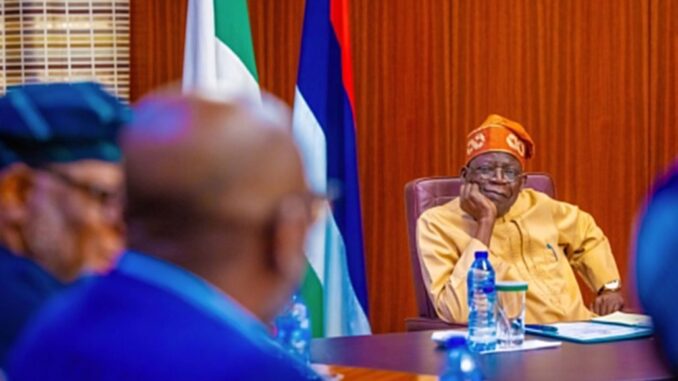
In its transitional activities, the Bola Ahmed Tinubu administration recalled Nigerian ambassadors from their mission in early September. In the communication conveyed by the Foreign Ministry, the envoys were “expected to commence the process of winding down your affairs, and take formal leave of your host government within 60 days and to return to Nigeria by 31st October, 2023, at the latest.” The only exception was Nigeria’s United Nations Permanent Representative in New York and Geneva due to the recently concluded United Nations General Assembly (UNGA). Ajuri Ngelale, the presidential spokesman underlined this point in a statement to the effect that “Nigeria’s United Nations Permanent Representatives in New York and Geneva be exempted from this total recall, in view of the upcoming United Nations General Assembly, holding later this month”.
While the recall of the country’s envoys according to the presidential directive was to take immediate effect, hindsight development portrayed the action of the president as hasty and not well thought through. According to credible sources, the expected deadline for return was before October 31, but the envoys were stranded due to dithering and non-release of Authority to Incur Expenditures 9(AIEs). The latter is important and embodies the details of the entitlement of every envoy in terms of his/her passages and sundry travel arrangements to return to Nigeria.
The Ministry of Foreign Affairs made the point that ambassadors as representatives of the country serve at the behest of the president who enjoys the prerogative to send or recall them from any country. We concur. Whereas it is the legitimate right of every new administration to choose its envoy, such exercise should not be done in a hurry, rather it should be well calibrated to allow envoys to adequately prepare themselves and their families for exit. The lack of thought in this direction has reportedly occasioned financial hardship to many envoys who lamented that much as they wanted to return within official deadline, they could not, due to absence of Authority to Incur Expenditure (AIE). It was subsequently speculated that government had extended the timeline for the recall by another three months due in January 2024. This has been denied by government, but its significance and negative impact on government’s directive is not diminished nonetheless. Foreign Affairs Minister, Ambassador Yusufu Tuggar, in a statement by his Special Assistant on Media and Strategic Communication, Mr. Alkalis Abdulkarim, said contrary to reports, the October 31, deadline was sacrosanct and further placed embargo on the foreign Missions Accounts ”to check frivolous spending by the Ambassadors.“
Diplomatic sources argue that recall is a painstaking exercise even under a military regime because it takes quite some time to nominate, vet, screen, confirm, and receive bilateral agreement from host countries before envoys assume duties at their respective posts. For its failure to be effective, the order left the country in an embarrassing situation for the reason that all the Nigerian missions may be without heads for a long time. The country maintains close to 300 missions overseas; and the hurried arrangement would have left Nigeria with ambassadors leaving the missions in the hands of Charge d’Affaires (CDA), with limited diplomatic leverage creating difficulty for the president’s overseas visits as no one would be available to make an appointment. This translates into a diplomatic downgrade.
Nevertheless, even the three-month speculated extension is seen as inadequate as due process of recall should take six to eight months except in a situation of diplomatic spat which is guided by Article 9 (1) of the Vienna Convention on Diplomatic Relations which states that “The receiving State may at any time and without having to explain its decision, notify the sending State that the head of the mission or any member of the diplomatic staff of the mission is persona non grata or that any other member of the staff of the mission is not acceptable. In any such case, the sending State shall, as appropriate, either recall the person concerned or terminate his functions with the mission. A person may be declared non grata or not acceptable before arriving in the territory of the receiving State.”
The reason is obvious. In the diplomatic domain, there is always an agreement by a state to receive members of a diplomatic mission from a foreign country. In this procedure, the sending state formally requests consent via a demande d’agreation, from the receiving state before appointing a diplomat (usually an ambassador) to the receiving state. As a diplomat rightly noted, “As every country does, the way out is to put forward your nominees; security agencies will screen them, and they go to the Senate for confirmation. The Ministry of Foreign Affairs will send letters of agreement to the countries they are being posted and ask, ‘Do you agree?… The other countries will start their own investigations.
Sometimes agreement takes between six to eight months. The least is two months for African countries because they will ask their security agencies to carry out thorough screening as ambassadors enjoy immunity.”
Besides, there is the interest of career diplomats to consider. They ought not to be subjected to the subjectivity and caprices of politicians. There is an additional impediment to the recall, that is, the usual financial constraints of Nigerian missions. While the recall is in motion, the missions have yet to receive overhead meant for the last semester of the year, July to December, traditionally due in June. However, the situation is grim with the plummeting rate of the naira that may result in a shortfall in allocation.
END

Be the first to comment